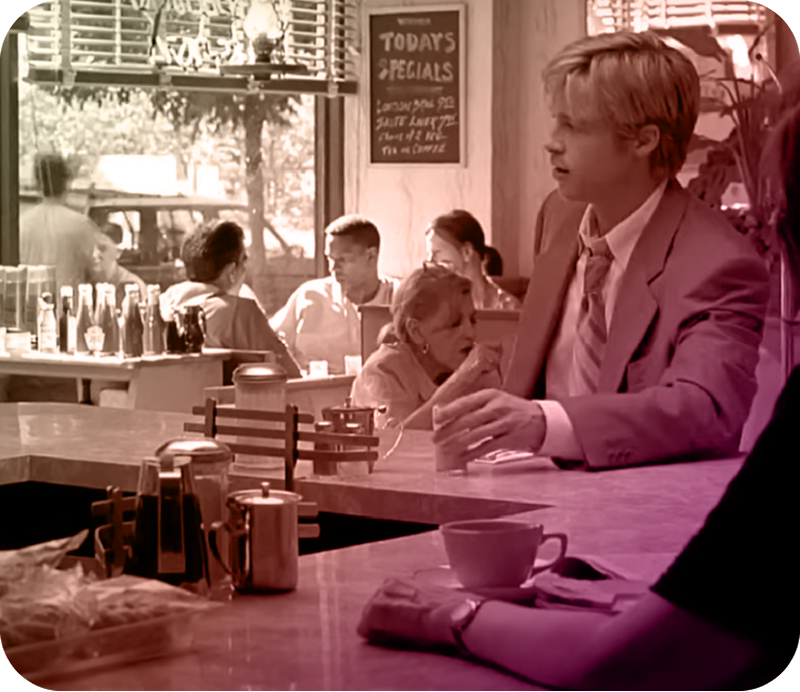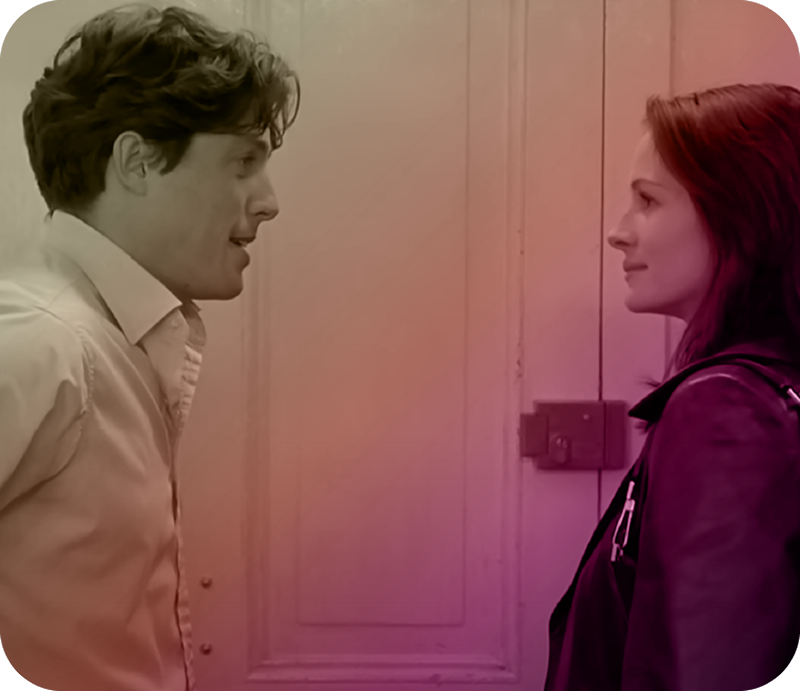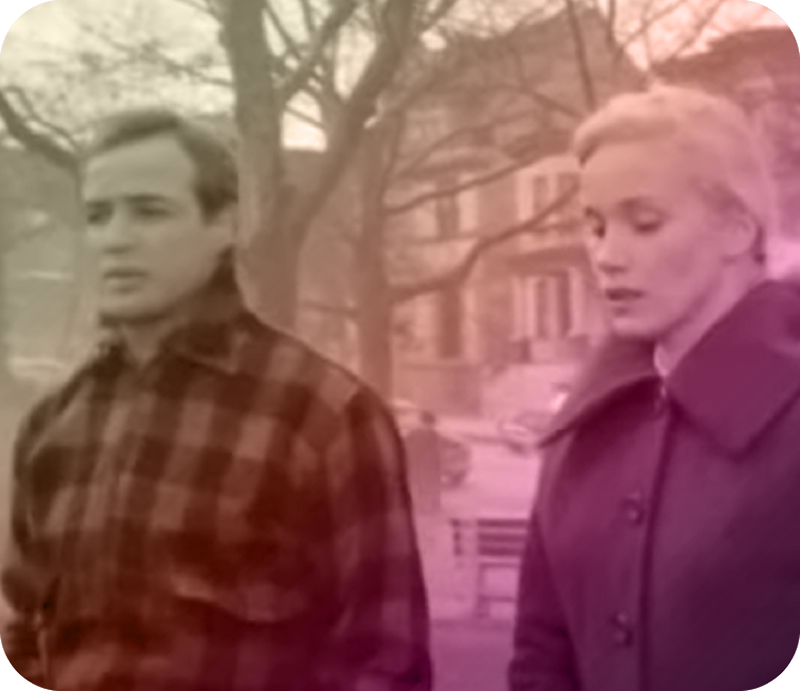Wouldn’t it be great to live in a world where someone new might just walk up and say hello?
It’s time to have more conversations.
Once upon a time, not so long ago, people approached each other more freely in everyday life. In restaurants and elevators, on check-out lines and city streets, at sports events, health clubs, coffee shops and museums, people were generally friendly, open to chat, and not tied up with their phones. Before tech started crowding out real life, if you wanted to start a conversation, you just said hello.
It might still be like this in some places, but mostly it’s not. Smart phones, dating apps, and professional profiles have mixed with Covid, politics, and algorithms to create a perfect storm of social inhibition. People start fewer conversations these days.
Conversation, not romance, is the focus of our work. But we love films that highlight the adventures that can start with conversation.
Send us your favorite clips at FTM@overturenyc.com.


Overture gets the conversation started
Overture makes it easier than ever to talk to someone new. First, we show you people nearby who are open to a conversation – with no profiles, prep, or algorithms. Then, we let you send a simple invitation to talk. If and when that invitation is accepted, the real conversation – face-to-face – can begin. Because even though it’s an app, Overture aims to get people to look up from their phones and engage in real life.
We provide a fresh alternative to frustrating profiles and manipulative algorithms. Registration is free and requires only a first name, a photo, and a cell number (which is never shared with other users). There is also an optional short conversation prompt and room to share your social media. We don’t accept extensive profiles or financial data.
Only users at the same venue can see the guest list. Once someone leaves, they drop off that list and can’t see who’s still there. So you need to be out in real life to use Overture.

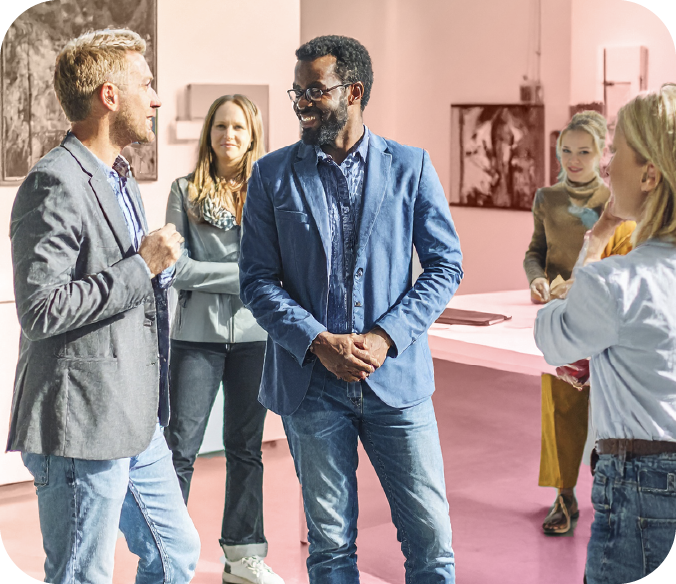
We are building a community that talks and listens
How many times have you been out by yourself, then felt like talking about your experience? Who better to chat with than someone at the same place doing the same thing? Alternatively, how much more often would you go out if you might find somebody to talk to?
Maybe you go out by yourself for a bite to eat. You don’t know anyone, so you use Overture to signal that you’re open to conversation — but only right there and then, reserving the ability to reject any invitations that don’t appeal to you.
Or you’re at a bar, watching a game. Wouldn’t it be great to know whether anyone else there is rooting for the same team or players?
What if you’re at a museum and see someone interesting you’d like to meet. But this being 2025, you are concerned about being too pushy. Why not send a spontaneous request to introduce yourself?
These are just some situations where Overture can help spark real life conversations and connections. Together with our users, we want to make social life more full, fun and easy.
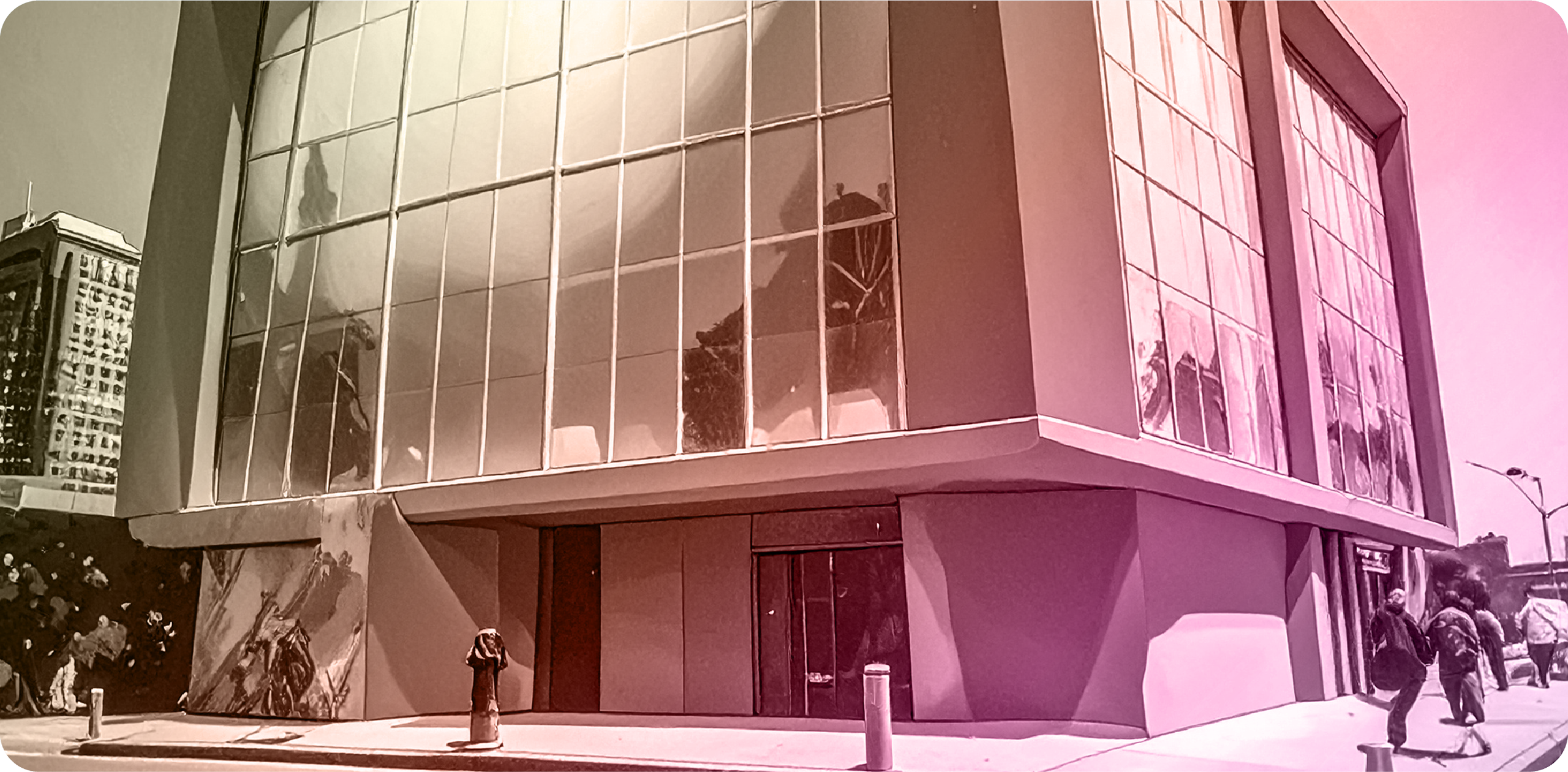
We pick the right places
Real life gives us limitless places to connect. We work with venues where people probably already share an interest — places where people are likely to have some common enthusiasm before they walk in the door. In New York City, that includes the great cultural institutions.
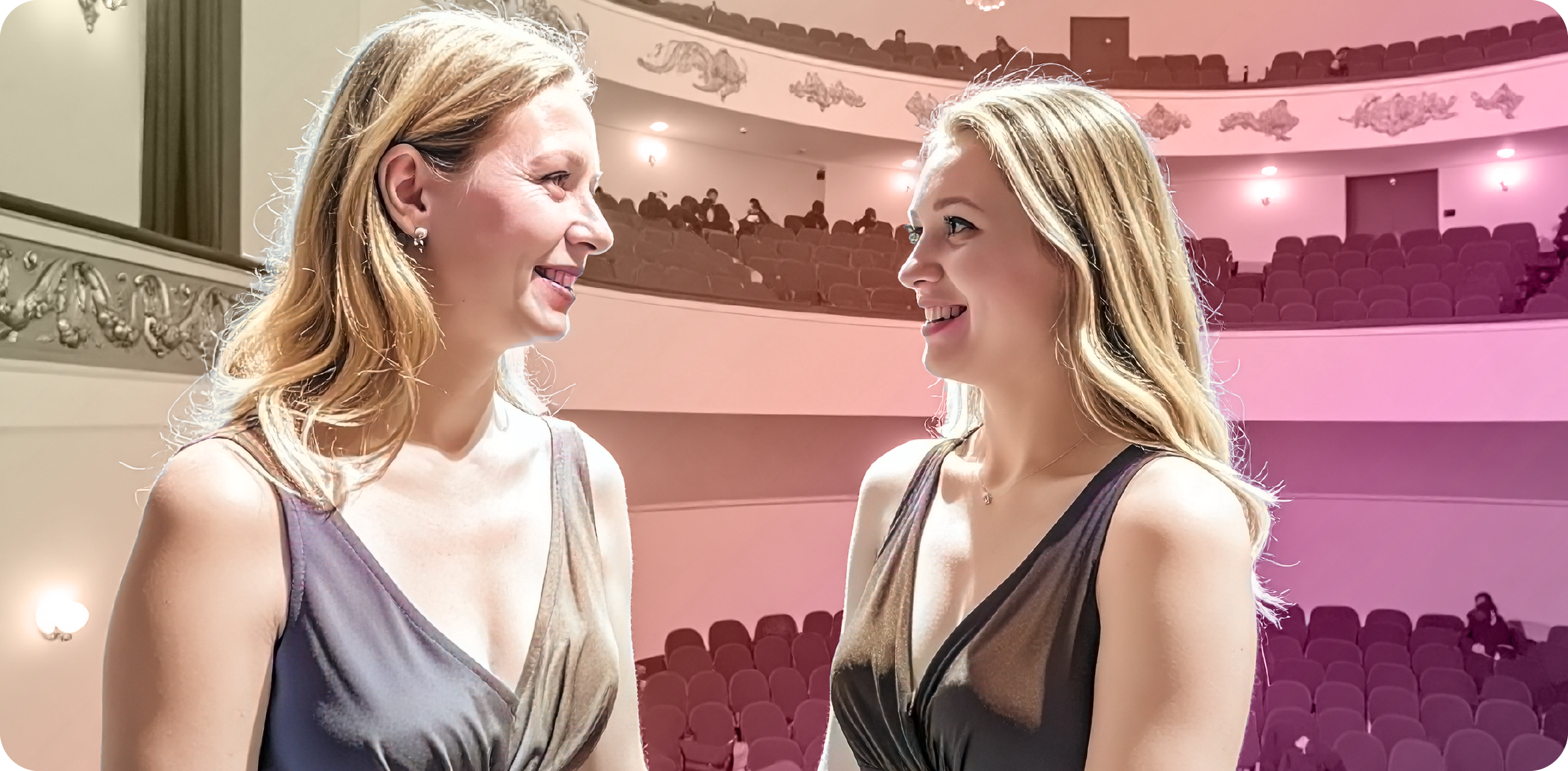
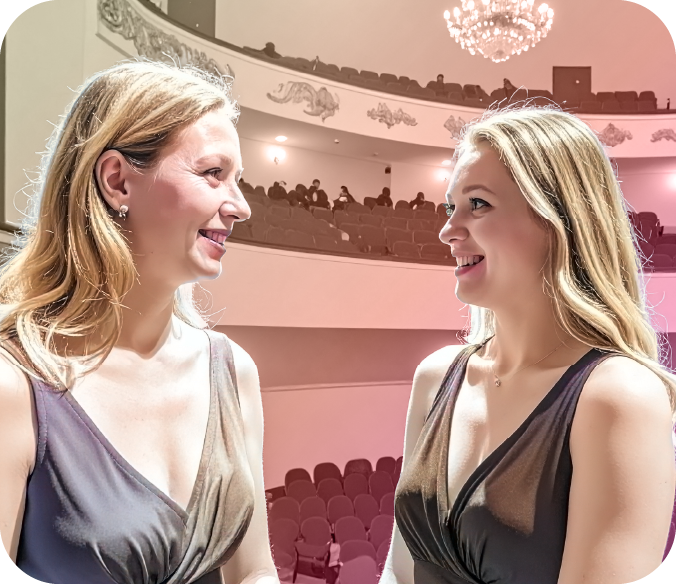
Why we call it overture
An Overture has two main definitions. It’s an introduction to something more substantial; or a musical piece at the beginning of an opera, play or other composition. Either way, an overture requires initiative, and sometimes a little courage.
We created Overture because we believe in the transformative power of personal presence and the irreplaceable benefits of real-life conversation. We have seen how, in this current social scene, many people are not comfortable receiving a personal approach, and how that can discourage even the people who still want to say hello.
Overture can fix this. We are here to convene a community around real-life conversations.
recommended reading
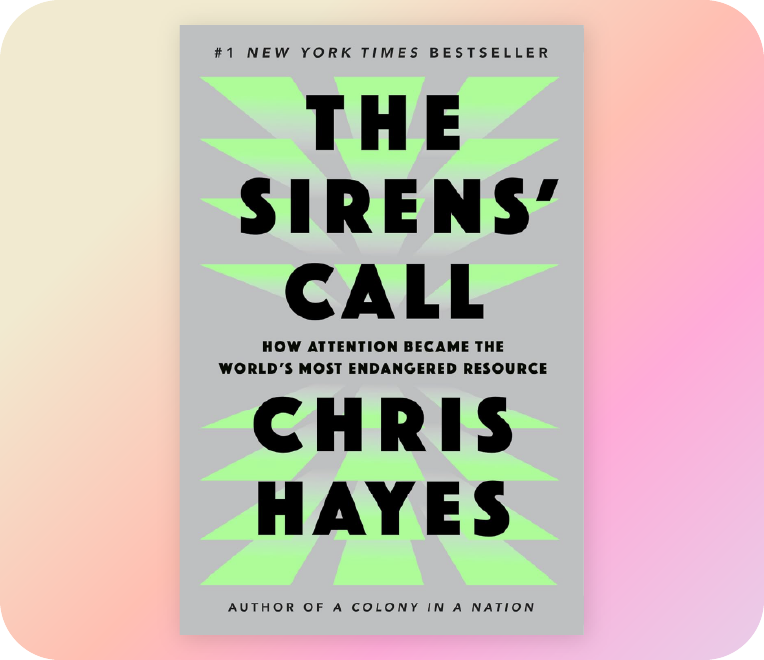
Chris Hayes
The Sirens’ Call
(Penguin Press, 2025)
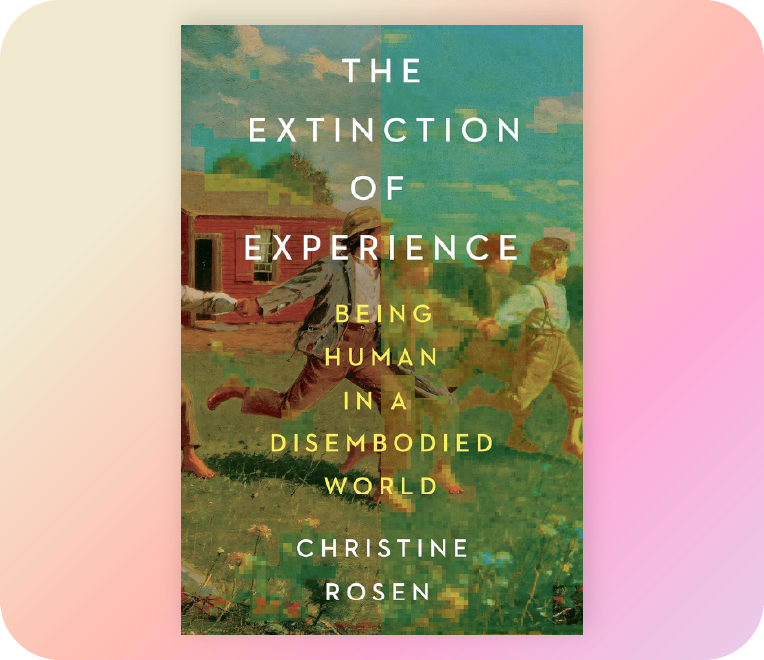
Christine Rosen
THE EXTINCTION OF EXPERIENCE: BEING HUMAN IN A DISEMBODIED WORLD
(W.W. Norton & Co., 2024)
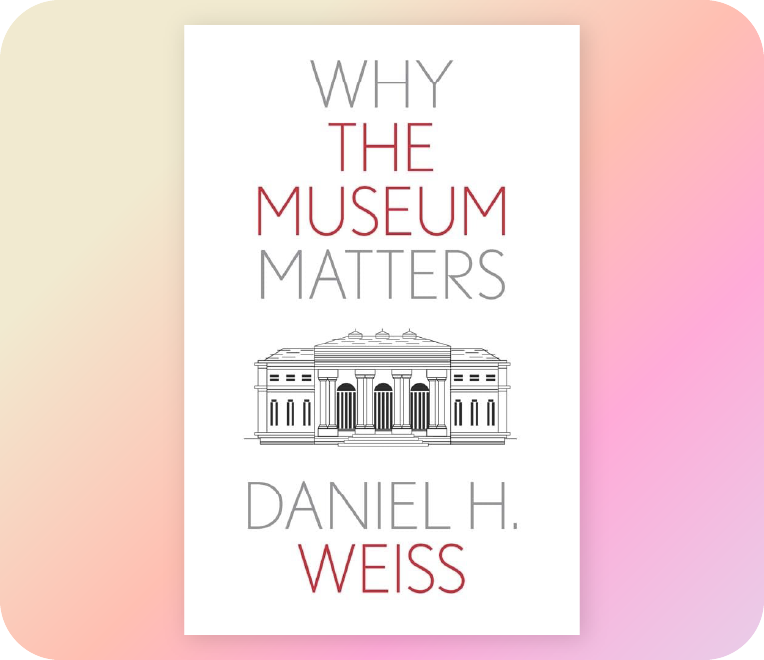
Daniel Weiss
Why the Museum Matters
(Yale University Press, 2024)
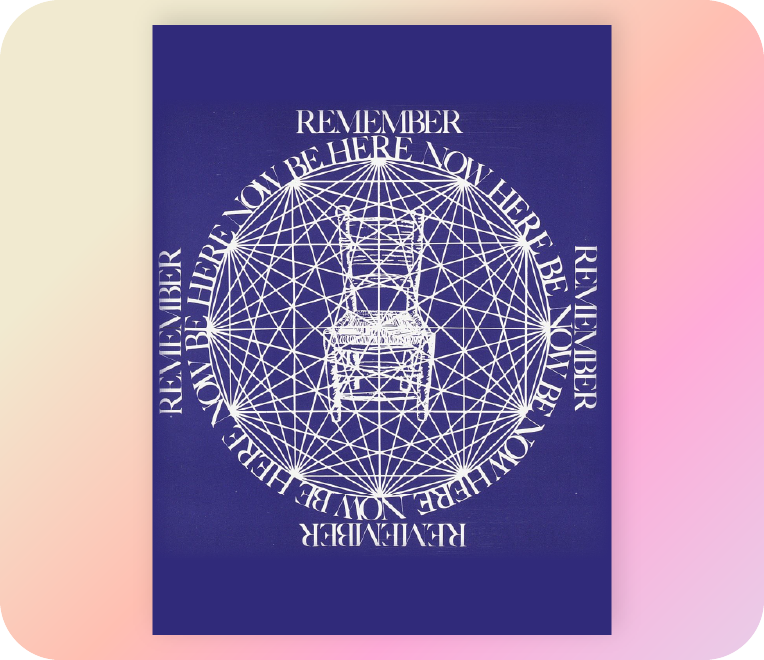
Ram Dass
Be Here Now
(Harmony Books, 1978)
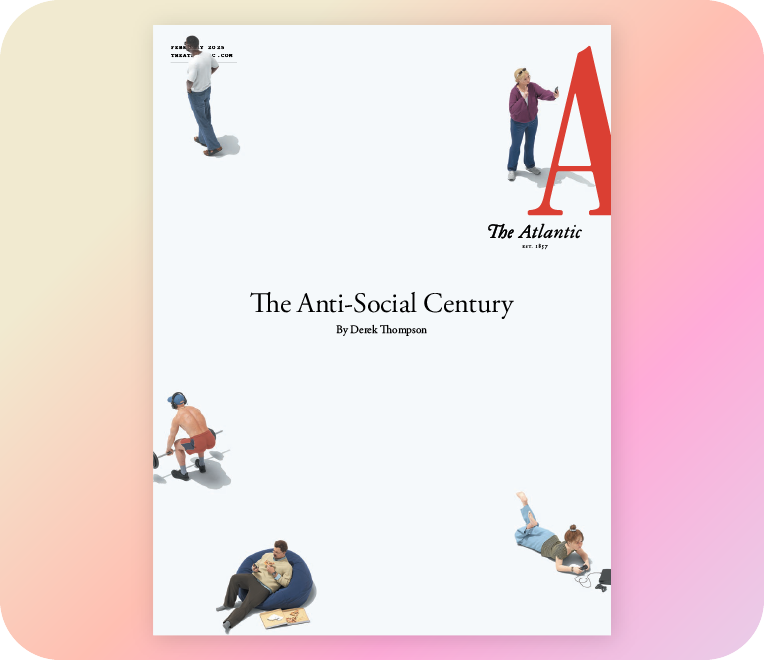
Derek Thompson
THE ANTI-SOCIAL CENTURY
(The Atlantic, February 2025, at 26)

